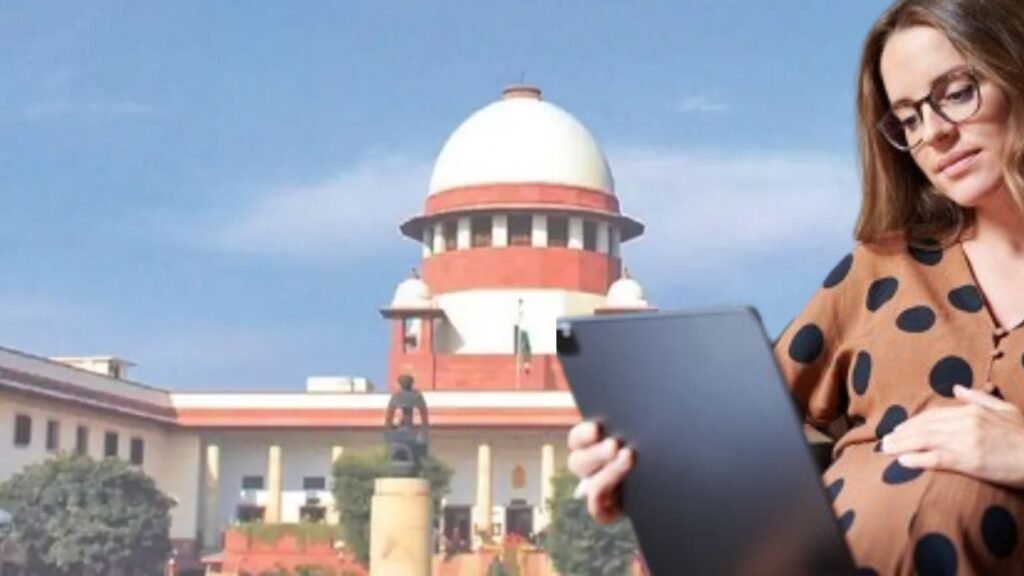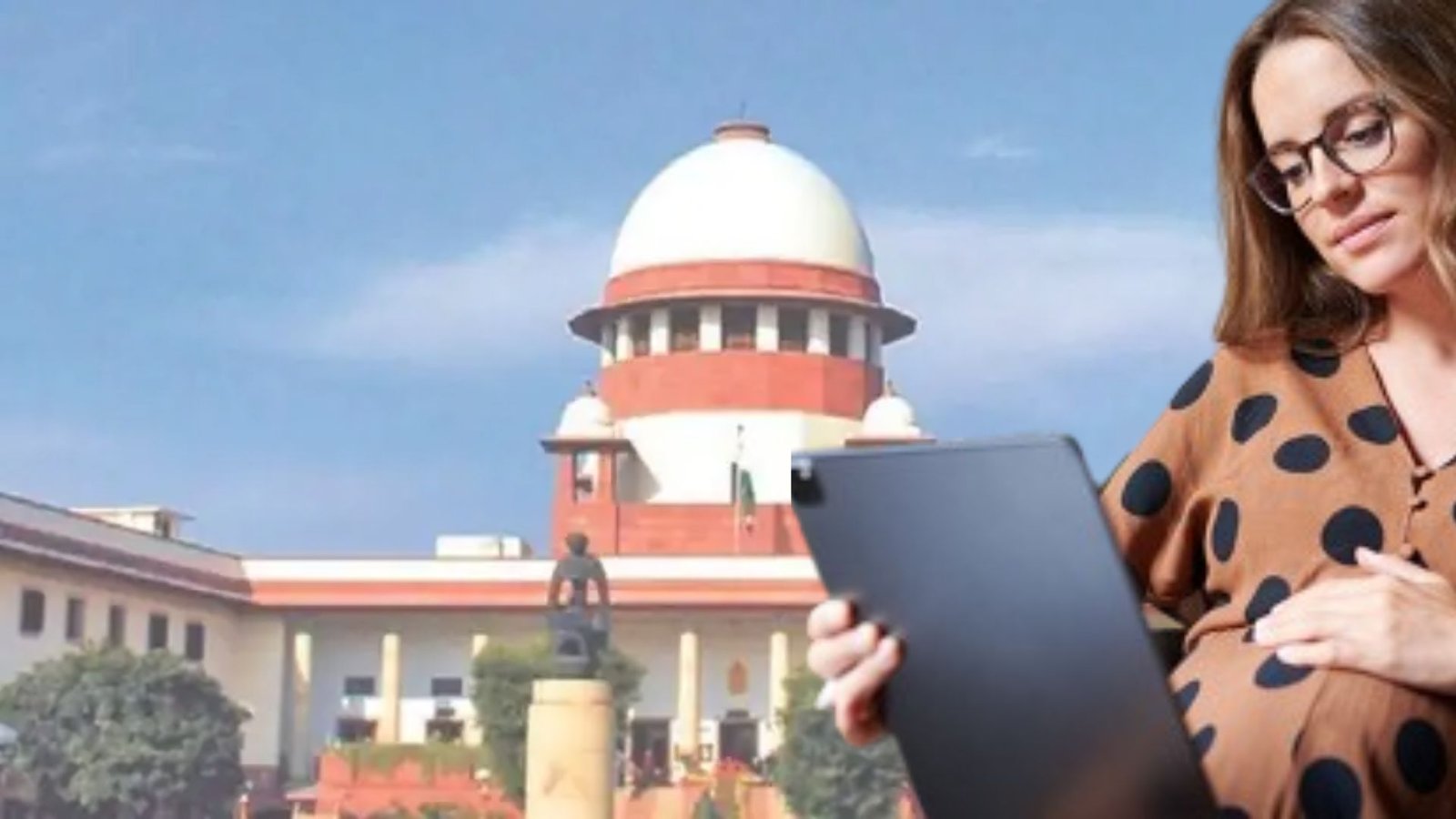✅ Subheading (Intro Sentence):
The Supreme Court recently held that maternity leave is a facet of a woman’s reproductive rights and right to life under Article 21 and cannot be denied solely because the child was the third child born to the woman and was conceived from her second marriage.
🧾 Article Body:
In a landmark ruling that strengthens the rights of working women, the Supreme Court of India has clarified that maternity leave is an essential part of a woman’s reproductive rights, protected under Article 21 of the Constitution—the right to life and personal liberty.
The judgment came in response to a petition filed by a woman government employee who was denied maternity leave on the grounds that the child was her third, and was from her second marriage. Authorities had cited service rules limiting maternity leave to two surviving children.
A Broader Constitutional Lens
Rejecting this narrow interpretation, the Supreme Court bench emphasized that reproductive autonomy is a core component of a woman’s dignity and personal liberty. “Denying maternity leave in such cases undermines a woman’s constitutional right to motherhood, equality, and employment,” the Court observed.
The Court held that a “one-size-fits-all” bureaucratic approach to maternity cannot override constitutional protections, especially when it comes to women’s reproductive choices and marital status.
Strengthening Gender Equity in the Workplace
The judgment is a significant step in affirming women’s rights in public employment, where rules often ignore the socio-legal realities of remarriage, childbearing, and adoption. The Court acknowledged that maternity leave is not a concession but a statutory and constitutional entitlement aimed at ensuring health, bonding, and emotional security for both mother and child.
Legal experts see this as an alignment with global human rights frameworks. “It harmonizes Indian law with international labour standards and the CEDAW Convention,” said Advocate Meena Sharma, a senior practitioner in family law.
Not Just Policy—A Constitutional Mandate
The Supreme Court underlined that maternity leave policies must be framed in light of constitutional guarantees. The Court cautioned against rigid administrative interpretations that discriminate against women based on the number of children or remarriage. In doing so, it reinforced the evolving jurisprudence around reproductive justice.
A Precedent With Far-Reaching Impact
This verdict may impact several state government and central government policies that currently restrict maternity leave benefits based on the number of children. It’s also likely to be cited in future challenges concerning adoptive mothers, single mothers, and surrogacy-related benefits.
In a society where women’s biological and social roles are often viewed through outdated lenses, this ruling signals a progressive shift toward gender justice, dignity in the workplace, and inclusive governance.
🔗 Internal Links (embedded naturally):
This development adds to a growing body of progressive legal interpretations by the Supreme Court affirming fundamental rights of marginalized sections. For similar insights, visit our Insight section or follow the debate in our Debate forum. Stay informed with the latest updates via The Legal Observer.
🔗 External Link (YouTube – used once):
Watch our detailed legal breakdown of this ruling on The Legal Observer’s YouTube Channel.






